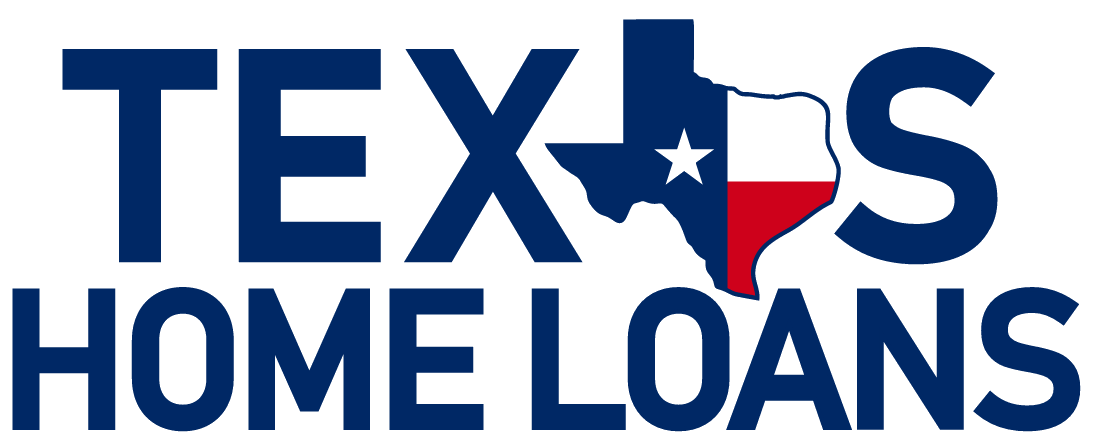Why Spring is a Prime Time for Real Estate Spring consistently ranks as one of…
5 Common Mistakes to Avoid When Applying For a Mortgage
Navigating the ins and outs of a mortgage application can often feel like wading through uncharted waters. However, with careful planning and attention to detail, you can avoid common pitfalls that trip up many hopeful homeowners. From checking your credit score early to exploring all available loan options, setting yourself up for success is key when it comes to securing the right mortgage for your needs. Let’s delve into some common mortgage mistakes to steer clear of in order to streamline your home buying process and put yourself in the best possible financial position.
Understanding the Mortgage Application Process
The mortgage application process involves various steps, paperwork requirements, and assessments to determine your eligibility for a loan. Understanding the intricacies of this process is crucial to ensuring a smooth application experience. From submitting personal and financial information to getting pre-approved, each stage plays a vital role in securing a mortgage loan. Familiarize yourself with the different components of a mortgage application, such as credit score evaluation, income verification, and property appraisal. Being well-informed about these aspects will not only streamline the process but also help you make informed financial decisions that align with your goals and circumstances.
Key Components of a Mortgage Application
The key components of a mortgage application include personal information, employment history, financial situation, credit history, and property details. Lenders will require details such as income information, contact information, and credit report. Providing accurate information is crucial for the application process. Additionally, understanding the type of mortgage that best suits your needs is essential. Different lenders may have varying requirements, so it’s important to be prepared with the necessary documentation. Being organized and proactive in gathering all the required information will help streamline the mortgage application process and increase your chances of mortgage approval. Understanding these key components is vital for a successful mortgage application.
Mistake #1: Not Checking Your Credit Score Early
One of the most common mortgage mistakes is not checking your credit score early in the homebuying process. Your credit score plays a crucial role in determining the interest rate you will be offered on your mortgage loan. A higher credit score can result in lower interest rates, which can save you thousands of dollars over the life of your loan. By checking your credit score early, you can identify any potential issues and take steps to improve your credit before applying for a mortgage.
How Your Credit Score Affects Your Mortgage Rates
Your credit score plays a crucial role in determining the mortgage rates you qualify for. Lenders use this score to assess your creditworthiness. A higher credit score typically results in lower interest rates, saving you money over the loan term. Conversely, a lower credit score may lead to higher interest rates, costing you more in the long run. It is essential to maintain a good credit score by making timely payments and managing your debts wisely. Before applying for a mortgage, check your credit score and take steps to improve it if necessary to secure better rates and terms. Understanding this relationship can help you make informed financial decisions when applying for a mortgage.
Steps to Take if Your Credit Score Is Low
If your credit score is low, there are steps you can take to improve your chances of mortgage approval. Start by reviewing your credit report for any errors and rectifying them promptly. Consider paying off outstanding debts to lower your credit utilization ratio. Additionally, refrain from opening new lines of credit before applying for a mortgage to prevent further impacts on your score. It might also be beneficial to consult with a financial advisor or credit counselor for personalized guidance on enhancing your credit profile. By taking these proactive measures, you can work towards securing a better credit score and increasing your likelihood of a successful mortgage application.
Mistake #2: Overlooking Potential VA Loan Benefits
Another common mortgage mistake is overlooking the benefits of VA loans for eligible veterans. VA loans offer several advantages, including lower interest rates, no mortgage insurance requirements, and flexible qualification criteria. Veterans who qualify for a VA loan can often obtain favorable terms and save money over the life of their mortgage. It’s important for veterans to explore their options and take advantage of the benefits available to them through VA loans.
Advantages of VA Loans for Veterans
VA loans offer numerous advantages for veterans, including lower interest rates and no down payment requirements. These loans are backed by the Department of Veterans Affairs, ensuring favorable terms for those who have served in the military. VA loans also have more flexible credit requirements, making them accessible to a broader range of veterans. Additionally, VA loans do not require private mortgage insurance, reducing monthly payments. Veterans can benefit from streamlined refinancing options and protection from substantial closing costs. Overall, VA loans provide a unique opportunity for veterans to secure affordable homeownership with substantial financial benefits.
How to Determine if You’re Eligible for a VA Loan
To determine your eligibility for a VA loan, you need to meet certain criteria. Firstly, you must be an active-duty service member, a veteran, or a surviving spouse of a service member. Secondly, ensure you meet the specific service requirements based on your period of service. Next, obtain a Certificate of Eligibility (COE) either through your lender or by applying online through the VA. This certificate validates your military service to qualify for the loan. Additionally, ensure you meet the lender’s credit and income requirements. By fulfilling these conditions, you can assess your eligibility for a VA loan seamlessly. Understanding these steps will help you navigate the VA loan application process more confidently.
Mistake #3: Ignoring Pre-approval
Ignoring the importance of mortgage pre-approval is another common mistake made by homebuyers. Pre-approval is an essential step in the mortgage process that can give you a competitive edge when making offers on homes. Without pre-approval, sellers may be less likely to consider your offer, especially in a competitive market. Getting pre-approved for a mortgage allows you to determine your budget, shows sellers that you are a serious buyer, and gives you confidence in your ability to secure financing.
The Importance of Mortgage Pre-approval
Securing mortgage pre-approval is a critical step in the mortgage application process. It provides an estimate of how much money you can borrow, aiding in your home search within a realistic budget. Pre-approval also signals to sellers that you are a serious buyer, potentially giving you an edge in a competitive market. By getting pre-approved, you can streamline the final loan approval process once you find your dream home, expediting the closing timeline. Additionally, pre-approval can help you identify any issues with your credit or financial situation early on, allowing you to address them before making an offer, ensuring a smoother transaction overall.
How to Prepare for the Pre-approval Process
Understanding how to prepare for the pre-approval process is vital for a successful mortgage application. Start by organizing your personal and financial information, including credit history, income details, and employment history. Ensure that all documentation is accurate and up to date. It’s crucial to review your credit report for any errors and address them promptly. Additionally, being aware of your current financial situation and assessing how much you can afford will help determine the type of mortgage that best suits your needs. By gathering all necessary documents and having a clear understanding of your financial standing, you can streamline the pre-approval process and increase your chances of mortgage approval.
Mistake #4: Underestimating the Impact of Your Debt-to-Income Ratio
Underestimating the impact of your debt-to-income ratio is a common mistake that can affect your ability to qualify for a mortgage. Lenders use the debt-to-income ratio to assess your ability to manage your monthly mortgage payments in relation to your other financial obligations. A high debt-to-income ratio can make it challenging to get approved for a mortgage or result in higher interest rates. It’s important to carefully consider your debt-to-income ratio and take steps to improve it before applying for a mortgage.
What is Debt-to-Income Ratio and Why It Matters
Debt-to-Income Ratio (DTI) is a crucial metric in the mortgage application process. It measures your monthly debt payments against your gross monthly income. Lenders use DTI to assess your financial health and determine your ability to manage monthly mortgage payments. A lower DTI indicates less financial strain and a higher chance of mortgage approval. Typically, lenders prefer a DTI ratio below 43%. It’s essential to keep your DTI in check by minimizing debts and increasing income to improve your chances of securing a favorable mortgage loan. Understanding and monitoring your DTI can significantly impact your mortgage approval and the terms you receive.
Tips to Improve Your Debt-to-Income Ratio Before Applying
Ensure a favorable debt-to-income ratio by reducing existing debts. Consider paying off outstanding loans or increasing your income through side gigs. This adjustment can enhance your financial profile, making you a more attractive mortgage applicant. Engage with a financial advisor to strategize on debt repayment plans and optimize your DTI ratio. Additionally, avoid taking on new debts before applying for a mortgage, as this can negatively impact your ratio. By following these tips, you can boost your chances of mortgage approval and secure better loan terms. Remember, a healthy debt-to-income ratio is key to a successful mortgage application.
Mistake #5: Overlooking Additional Costs
Overlooking additional costs associated with buying a home is a common mistake that can lead to financial surprises down the line. In addition to the down payment and monthly mortgage payments, there are other costs to consider, such as closing costs and ongoing expenses like property taxes and insurance. By overlooking these costs, you may find yourself struggling to cover all the expenses associated with homeownership. It’s important to budget for these additional costs and factor them into your overall financial plan.
Identifying Hidden Fees and Costs in Your Mortgage
When reviewing your mortgage offer, it’s important to identify any hidden fees and costs that may not be immediately apparent. Hidden fees can include charges for loan origination, appraisal fees, or processing fees. These costs can add up and significantly impact the total cost of your mortgage. To ensure you have a clear understanding of the total costs associated with your mortgage, carefully review the loan estimate and closing disclosure provided by the lender. These documents outline all the fees and costs associated with your mortgage and allow you to compare offers from different lenders accurately.
Planning for Closing Costs and Other Expenses
Planning for closing costs and other expenses is crucial in the mortgage application process. In addition to the down payment, buyers need to consider various fees such as appraisal costs, title insurance, attorney fees, and more. Understanding these expenses beforehand helps in budgeting and avoiding financial surprises at closing. Proper planning ensures a smooth transaction and prevents any last-minute hurdles. It’s advisable to discuss these costs with your lender and real estate agent to get a clear picture of the overall financial commitment involved in purchasing a property. By factoring in these additional expenses early on, you can approach the closing process with confidence and financial preparedness.
Frequently Asked Questions
How can I improve my chances of getting approved for a mortgage?
To improve your chances of getting approved for a mortgage, focus on improving your credit score, maintaining a stable financial situation, and demonstrating a consistent employment history. Lenders consider these factors when evaluating your creditworthiness and ability to repay the mortgage loan.
What are the benefits of getting pre-approved for a mortgage?
Getting pre-approved for a mortgage can offer several benefits. It allows you to determine your budget, makes you a more attractive buyer to sellers, and gives you leverage when negotiating. Additionally, pre-approval provides the opportunity to lock in favorable mortgage rates.
How can I compare different mortgage offers effectively?
To compare different mortgage offers effectively, focus on key factors such as the interest rate, loan terms, and total costs. Consider obtaining quotes from multiple lenders, evaluating the long-term costs of each offer, and choosing the option that best suits your financial goals.
Conclusion
Avoiding mistakes in getting a mortgage is important for a successful home loan. To avoid problems, understand the mortgage process. Check your credit score early. Look into VA loan benefits. Get pre-approved and manage your debt-to-income ratio. Shop around for good rates to save time and money. Being ready and informed helps you make smart financial choices confidently in the mortgage process. Remember, preparing ahead is key to reaching your dream of owning a Texas home.





